Featured
TWO NATION BUILIDERS, TWO DEATHS: THE SHEHU SHAGARI AND LULU BRIGGS CONNECTION
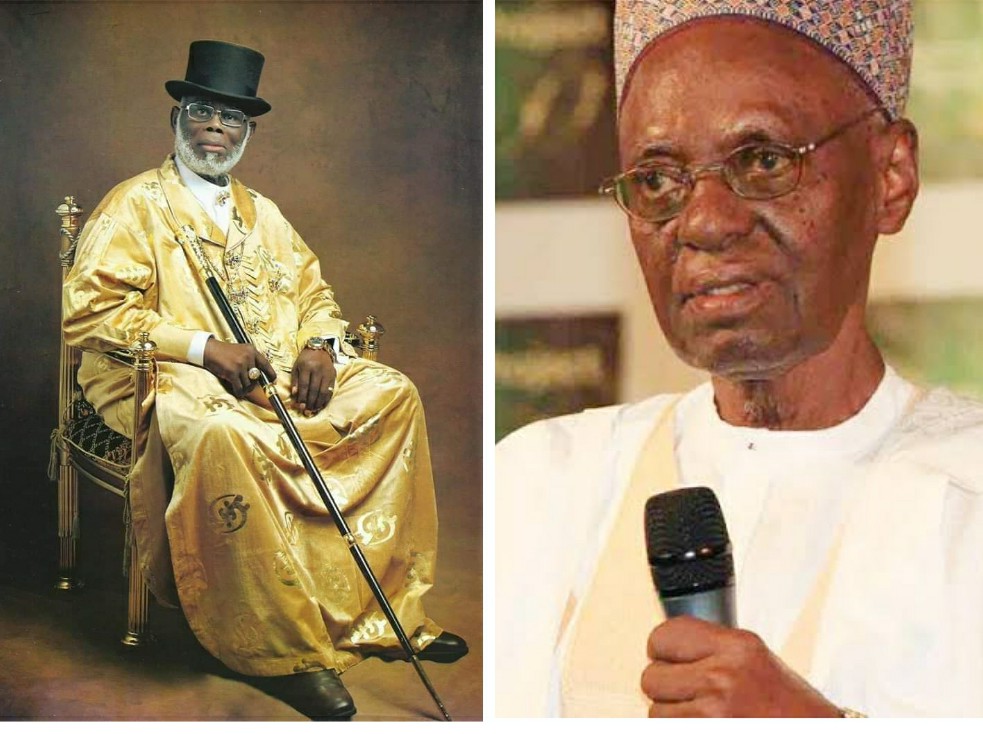
By: Godknows Igali
Two great friends and political allies died peacefully a few hours apart. One in Abuja, Nigeria’s capital city. The other in Accra, the capital city of neighbouring country, Ghana where he had gone for a short visit. One from the aridity of the peaceful sub-urban town of Shagari, close to the headquarters of the Sokoto Caliphate in Nigeria’s extreme northwest. The other from the swampy creek town of Abonnema, once a vibrant base for Europe’s “Legitimate Trade” in agricultural produce in the aftermath of the abolition of slave trade, but today in the heart of the famous Niger Delta. More, one was a professional public servant who at a time ruled the country. The other, a business mogul and strategist, who dexterously controlled the political machinery that brought his friend to power.
So, while Nigeria’s first democratically elected President, Alhaji Shehu Shagari died on Friday, 28th December 2018, his friend once Africa’s 40th richest man, High Chief OB Chief Lulu-Briggs, preceded him few hours earlier on 27th December 2018. They were of good old ages of 93 and 88 years respectively. The remains of President Shagari were interred, swiftly but methodologically, in line with Islamic injunctions. But that of his partner in death, High Chief Lulu-Briggs will wait a few more days for proper consultations between the family and the church as well as with the Kalabari traditional hierarchy in a manner befitting an Ijaw ‘Opu Alabo’.
Fate and fortune brought them close when General Olusegun Obasanjo, kept to his promise to return Nigeria to democratic government in 1979 after 17 years of military rule. The military rule itself which began on 15th January 1966, had decimated a number of the country’s founding fathers; especially from the north, who had ruled the country at the time.
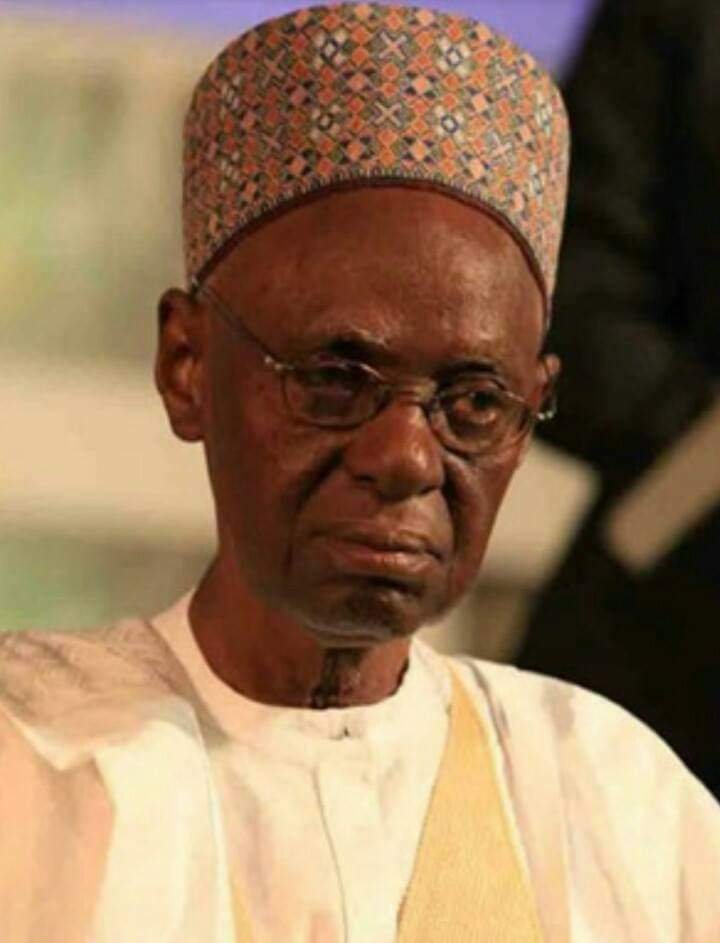
Shagari was a Minister and power broker from the same Sokoto as the great Sir Ahmadu Bello, Premier of Northern Nigeria and de facto strongman in Nigeria at the time. The Prime Minister, Sir Tafawa Balewa was more than a boss to him but also a brother with whom he had the pleasure of being teachers in the past. These eminent personalities were comrades-in-arms with Shagari as well as his closest associates. Indeed, after that bloody coup, in which he divinely emerged unscathed, he was one of the few northern leaders invited for dialogue to save Nigeria from splintering at that critical time in our history. Obviously, the desire for an early return to civilian rule was of a great emotional burden to him.
When the ban on political activities was lifted in September 1978, NPN, a centre-right platform soon emerged out of a meeting held in a hall in Satellite Town, in the outskirts of Lagos on September 20, 1978. Led by one Alhaji Makama Bida, a prominent first Republic northern politician and by virtue of age, the most senior, this new political group had national character pulling its strength mainly from the crème-de-la-crème of the political remnants of the First Republic. The nascent party actually recruited its initial membership from the Constituent Assembly (CA) which the General Olusegun Obasanjo administration had convened to draw up a new constitution for Nigeria. Interestingly that document which became The 1979 Constitution of Nigeria, jettisoned the parliamentary system inherited from the British and took Nigeria to the American type presidential model.
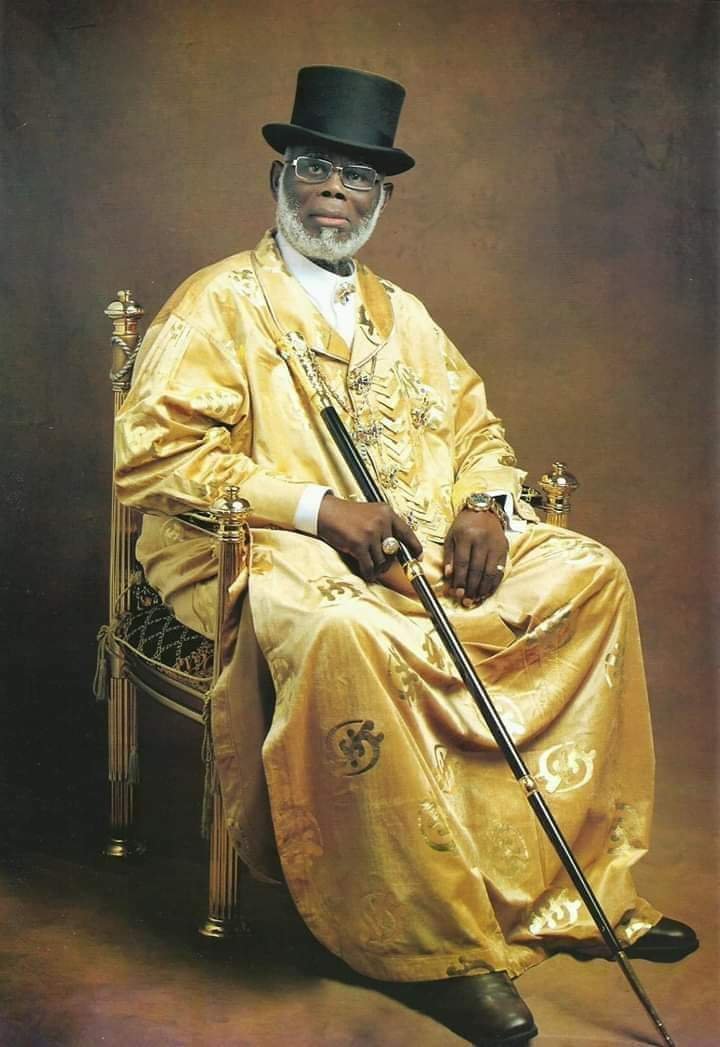
It was not NPN alone that was formed. As political activities heightened, some political leaders from the rest of the country started viewing the NPN as the apparition of the erstwhile pre-1966 ruling party, the Northern Peoples Congress Party (NPC) and its alliance of friends and associates. Hence, Former President, Dr Nnamdi Azikiwe, the great Zik of Africa, formed the Nigerian Peoples Party (NPP), with a strong base in the South East, but having with him some other heavy-weights from elsewhere such as Chief Adeniran Ogunsanya, Mr Ademola Thomas and Chief TOS Benson. Others were Chief Solomon Lar, Professor Ishaya Audu, and Dr Paul Unongo from the Middle Belt.
On his part, former Premier of Western Region, Chief Obafemi Awolowo, formed the Unity Party on Nigeria (UPN), drawing its strength from the South-West but had such names as Chief MCK Ajuluchukwu, Chief Philip Umeadi. Alhaji Waziri Ibrahim, the exponent of ‘politics without bitterness’ who was initially with Dr Azikiwe but broke away to form the Greater Nigeria People’s Party (GNPP), which had a stronghold in the North East. In the same manner, the radical and proletarian Mallam Aminu Kano, initially part of the NPN, left with his core elements such as Abubakar Rimi, Balarabe Musa and Sule Lamido, all of who became Governors around the Kano, Kaduna and Jigawa axis to form the Peoples Redemption Party (PRP).
In true and objective reminiscence of the political trajectory of the country up to the 1966 military putsch, most of the new political aggrupations in 1978 showed that little had changed as the parties simply rehashed the status quo ante. However, the newly formed NPN had wider national spread and reach. The party was brimming with heavy-weights, such as the flamboyant Ibo politician, Dr Kingsley O. Mbadiwe, better known as KO or “man of calibre and timber” donating an office block at Jibowu Street, Yaba, Lagos for use as secretariat.
On October 5, 1978, the party met in Lagos, in a night of great horse trading to share elective and party offices with the objective of having all zones represented. It was agreed amongst others that, President (North), Vice President (South, preferably Ibo), Party National Chairman (South West), National Vice Chairman of Party (Southern Minorities), National Secretary of Party (South East) etc.
It was against this backdrop, that the First National Convention of NPN was held on December 12, 1978, at the old Casino Hotel, Yaba, Lagos. Expectedly, the who is who in mainstream and centrist political persuasions in Nigeria showed up. Although a few upcoming political hawks were noticeable, the conservative northern political apparatchiks showed their strength. Besides the presidential hopefuls, first republic ministers and leftovers from the NPC establishment such as Sule Katagum, Nuhu Bamali, Inuwa Wada, Kaloma Ali, as well as Umaru Dikko, Ibrahim Dasuki and Bello Maitaima Yusuf were visibly active. After many years of political exclusion, the Yaba Convention was, expectedly, another night of horse-trading. The best from the north, old and new, presented themselves to contest for the presidency. Prominent were, Alhaji Shehu Shagari, Alhaji Adamu Ciroma, Alhaji Maitama Sule, Dr Olusola Saraki (father of Bukola Saraki) and former Police helmsman, Alhaji Kam Selem. Others were Middle Belt leader, Dr. Joseph Tarka, Professor Iya Abubakar, Dr Ibrahim Tahir, etc. Eventually, Shagari emerged as the consensus candidate after an inconclusive first round of elections.
Shagari’s emergence was quite appropriate. Although he lacked the allure of Maitama Sule or the doggedness of Adamu Ciroma, he was by far the most qualified in terms of experience in governance. He had in the past held numerous government positions. More than any other Nigerian of his day, he truly represented the aphorism, “Government Pikin”. Apart from participating in all the constitutional conferences, from 1950 to 1959, he was at the very core of decisions on events in Nigeria for many decades. He had held ministerial positions in at least seven different government departments during his political career. These included critical sectors as Commerce and Industries, Economic Planning, Establishment and Pension, Works (including infrastructure) and ultimately, Finance. He was a member of the House of Representatives for almost ten years, secretary of the NPC, which consistently ruled Nigeria till the 1966 military coup.
In the rest of elections, the Ibadan strongman, Chief Adisa Meredith Akinloye, emerged National Chairman of the party. Other big names that were present to take these momentous decisions were Chief Remi Fani-Kayode (father of FFK), former Western State Governor, Major General Adeyinka Adebayo, industrialist, Prince Adeleke Adedoyin, legal luminary, Richard Akinjide, and industrialist, Chief Akin Deko. Also present were the younger crème of politicians such as Alhaji Lamidi Adebibu, MKO Abiola and many others from the west. From the southeast, the show of strength included such names as First Republic Ministers, Dr KO Mbadiwe, Dr J.O.J Okezie, former Anambra Governor, Chief CC Onoh and young firebrands such as Dr Chuba Okadigbo, Dr Walter Ofonagoro, Prof. Madubuike, and Chief Nnia Nwodo.
Of more significance to our work here was the team from the Niger Delta, where Chief Lulu-Briggs emerged as National Vice Chairman. A very successful businessman, Chief Lulu-Briggs, had been a major financier of political activities in Old River State. At the Constituent Assembly, he easily emerged as one of the main leaders from the present south-south. Others with him included such personalities as the once Awoist, Chief Anthony Enahoro, who at a youthful age, moved the motion for Nigeria’s independence in 1953 (he actually chaired this historic convention in Yaba). Others were, Melford Okilo, Clement Isong, (both of whom later became Governors), Dr Joseph Wayas, who emerged Senate President as well as Edwin Clark, Victor Akang, Victor Mazi and Donald Etiebet.
The bond between President Shehu Shagari and Chief Lulu-Briggs was sealed when the latter, as National Vice Chairman of the Party, played a very critical role in the Presidential Campaign Council. Being younger than the National Chairman, Chief Akinloye by at least 10 years, it behoved Chief Lulu-Briggs to accompany the Presidential candidate to every nook and cranny of Nigeria. In today’s south-south where he hailed from, this was particularly tough. The present-day Akwa Ibom, Bayelsa, Cross River and Rivers were part of the former Eastern Region and therefore under the strong influence of the great Zik of Africa. Similarly, Delta and Edo were for a long time part of the Western Region and therefore still had strong Awoist elements entrenched. On Election Day, Shagari captured two-thirds of votes in the entre south-south states, except for areas today known as Edo, where Chief Awolowo’s UPN produced the Governor. All other Governors from the area were NPN. In the final analysis, it was votes from what is today the south-south that gave President Shagari the clear winning edge, despite the legal fireworks which followed that election.
With an outstanding political resume, President Shagari’s four years of governance remains one of the highest points in Nigeria’s socio-economic development. Gladly, the first three years coincided with the “oil boom” era that gave the government enough resources to carry out their programmes. A few highlights will suffice. He initiated affordable, low-cost housing schemes in every one of the then 19 States at the time. Called “Shagari Houses” till today, thousands of Nigerian families have roofs over their heads on account of his efforts. His policy of food security saw a revamp of the agricultural sector. Most of the large dams in the country, including, Bakalori Dam in Kebbi State, Goronyo in Sokoto State and Zobe Dam Katsina as well as Dadin Kowa Dam and Kiri Dam in Gombe and Adamawa States respectively were all built by his government. The Oyan Dam which still supplies drinking water to Lagos and Ogun States and the huge Lower Anambra Irrigation Project (LAIP), amongst others, came on stream during his time. Several River Basin Development Authorities were further created around the country as vehicles to drive the government’s “Green Revolution” agricultural policy.
In the industrial sectors, he made some of the greatest impacts. He started the Ajaokuta Steel Complex in 1979, which was one of the largest of its kind in Africa. He also initiated and completed the smaller Delta Steel Plant in Aladja and the rest of the value chain by finishing three Steel rolling mills at Oshogbo, Jos and Katsina. In the same four tenure, President Shagari also built the Aluminium Smelter Company of Nigeria (ALSCON) in Ikot Abasi in Akwa Ibom. For the first time, huge Paper Mills were also established in Iwopin in Ogun State and Okun Ibokun in Akwa Ibom. These industrial complexes in various sectors scattered around the country were amongst the first of their type in Sub-Saharan Africa. Oil and Gas sector, he started and completed the Kaduna Refinery to which no new one has been added in the entire country 35 years after. In other areas, he built the Sapele inland port along the Benin River which is still in use. His administration also saw to the establishment of additional universities and teaching hospitals.
In the sphere of foreign policy, the President again brought Nigeria to the fulcrum of African and global diplomacy as the regional power.
Domestically, he was a pan-Nigerian who felt at home with people from all parts of the country. He granted pardon to one-time Head of State, General Yakubu Gowon who was alleged to have been involved in the Dimka coup. This paved the way for Gowon to return to the country after a long exile in the United Kingdom where he successfully acquired a PhD in political science at Warwick University. He also granted state pardon to former Biafran War Leader, Chief Odumengwu Ojukwu. With this, the latter also returned to Nigeria from his long sojourn in Cote d’Ivoire to which he fled after the civil war in 1970.
Shagari’s cultured and well-mannered pedigree also reflected in his appointment of Service Chiefs, thus: Chief of Defense Staff, Gen Alani Akinrinade (South West), Chief of Army Staff, Lt Gen Gibson Jallo (North East), Chief of Naval Staff, Vice Adm Akin Aduwo (South West), and Chief of Air Staff, Air Vice Marshall Abdulahi Dominic Bello (North Central) and Inspector General of Police, Sunday Adewusi (South West). With the exception of Gen Mohammed Wushishi (North Central) who succeeded Gen Jalo on the later’s retirement, none of these high ranking officials of state were of same religious or ethnic or stock. A greatly detribialized who felt at home with all!
In spite of these laudable credentials, his government was accused of being corrupt, weak and engaged in election rigging. There was however, no doubt that some powerful members of his inner circle such as the Minister of Transport Alhaji Umaru Dikko overreached himself and made enemies for the government. The Shagari government was also unfortunately steeped in excesses particularly with respect to the importation of fertilizer. But these allegations are observably child’s play compared to the various scandals plaguing the country today.
In those days when party supremacy had its true meaning and effect in Nigeria, Chief Lulu-Briggs, as Deputy National Chairman supported the National Chairman to give direction and form to the President Shagari government. Particularly, he led and played a critical role in the negotiations with Dr Azikiwe of NPP to bring them into the government as coalition partners. A debonair and suave player, Chief Lulu-Briggs, was a bridge of many sorts, working behind the scenes to ensure that the party and its government’s best interests were protected. His surviving contemporaries in the NPN such as nearly 92 years-old Chief Edwin Clark, who served as a Senator during that era, remember him as “A man who got things done quietly”. An erudite scholar, Prof Walter Ofonagoro, who served that NPN government and the party in various capacities at the time, described, Chief Lulu-Briggs as the pillar on which the party stood. According to him, “he worked and worked and got nothing for it, but had his eyes focused on entering the oil industry to which his people had been shut-out” Relatedly, he also brought his entrepreneurial drive to the duty of proper oversight over the entire NPN government both at the centre and in the states where they had produced the government. Although he preferred to remain essentially as a party man, many would recall that he was a go-getter and always produced results. For all these, President Shagari found in him a dependable ally and friend.
In the days following the military coup that ousted their government, both men remained close friends and moved on with life. Bearing no chips on their shoulders, they both stated their avowals of no ill-feeling against anyone. They continued serving the country with vigour and commitment. President Shagari became, unarguably the most respected former leader of Nigeria. Pliant, soft-spoken, stately, sagely and gentle in disposition, he participated in all state functions, even under great physical burden as ageing took its toll.
On the other side down the creeks, his friend who by dint of hard work and entrepreneurial skills had built up enormous wealth, focused on philanthropy and charitable causes. Though he was weighed down by Parkinson’s Disease, he sustained his efforts to touch countless needy and vulnerable Nigerians from all walks of life. Above all, both men devoted the latter part of their days on the things of God.
As the curtain of life close on the stage for both great men, Nigeria obviously mourns them. Beyond that, the inspiring fraternal bond which they shared and the patriotic zeal with which they attended to national service, should inspire, us all, the younger generation of Nigerian elite across the country. These two men demonstrated friendship that transcended ethnicity and religion. They were committed to the common good even in the face of undulating experiences of life.
Now, they must rest from their labours handing over a resplendent torch which we must keep aglow and, in the great future, pass on with stronger luminance.
Dr. Igali is a Diplomat and Administrator and award winning Author.
-

 News6 days ago
News6 days agoCooking Gas Price Has Fallen
-

 Gist7 days ago
Gist7 days agoMy Boss Used To ‘KNACK’ My Wife After Sending Me On A Mission, To The Extent She Got… – Ex-soldier
-
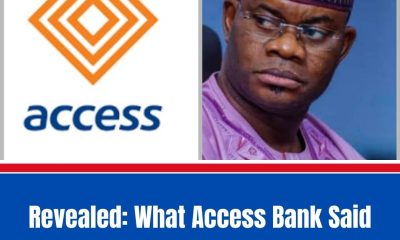
 Politics7 days ago
Politics7 days agoRevealed: What Access Bank Said About Its Dealings With Yahaya Bello
-
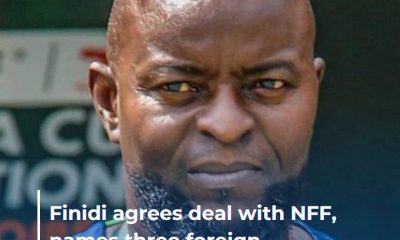
 Sports5 days ago
Sports5 days agoFinidi agrees deal with NFF, names three foreign assistants
-

 News6 days ago
News6 days agoRead How Auxiliary Was Whisked Away By Masked Security Agents as Family member Speaks
-
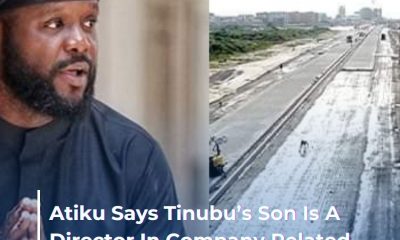
 Politics5 days ago
Politics5 days agoAtiku Says Tinubu’s Son Is A Director In Company Related To Coastal Road Contract
-
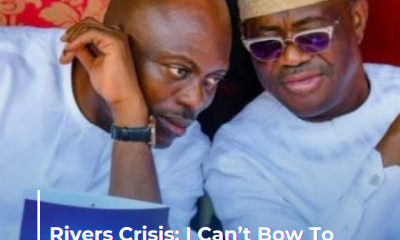
 Politics6 days ago
Politics6 days agoRivers Crisis: I Can’t Bow To Wike, He’s Not God – Fubara
-
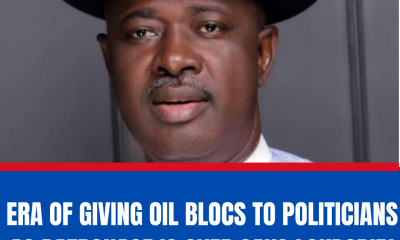
 News6 days ago
News6 days agoERA OF GIVING OIL BLOCS TO POLITICIANS AS PATRONAGE IS OVER SAYS LOKPOBIRI




